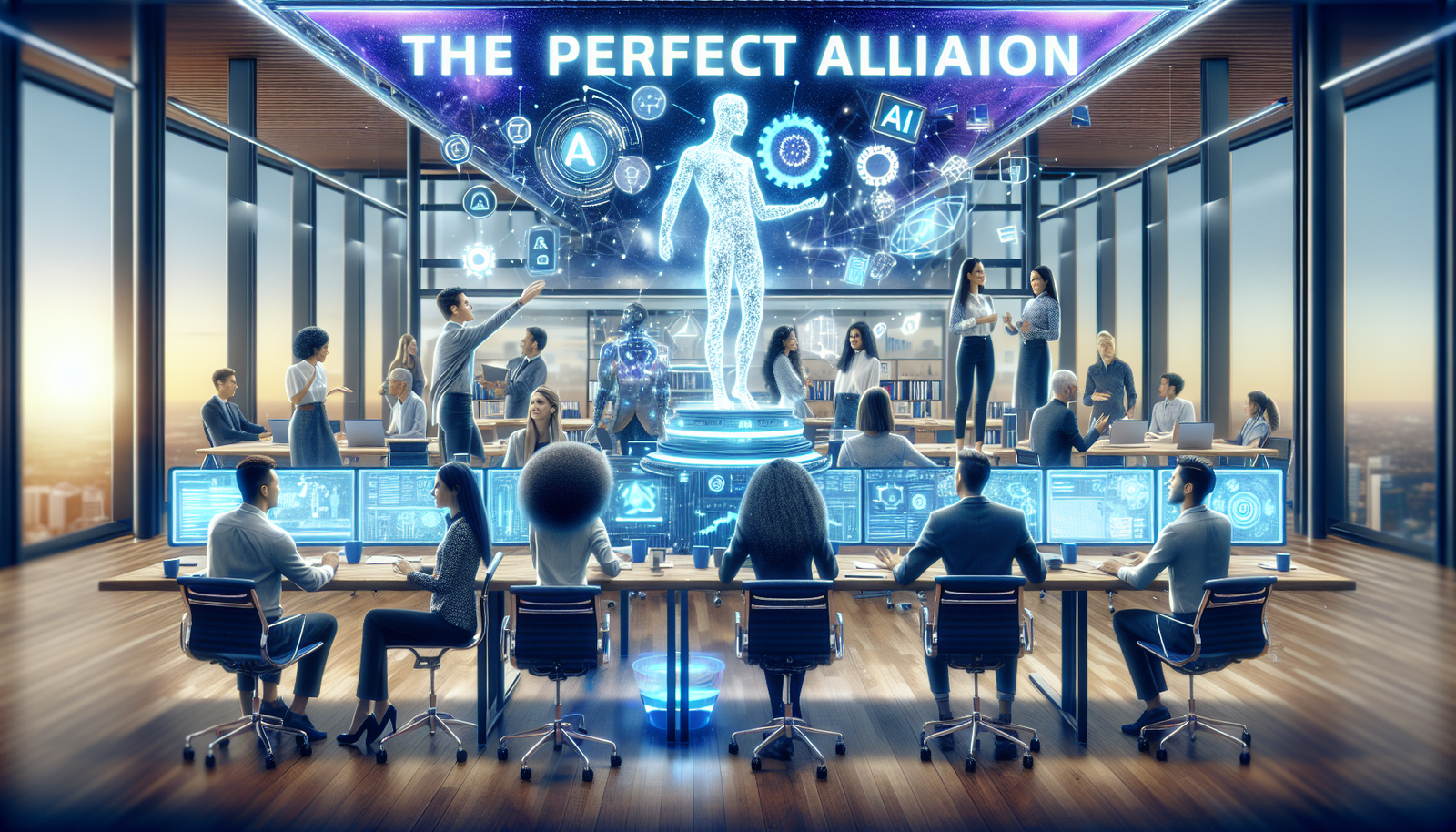The intersection between Generation Z and Artificial Intelligence (AI) is redefining the contemporary professional landscape. This synergy, both bold and promising, propels young professionals toward an unprecedented empowerment. The new expectations of young workers are shaping an era where AI becomes an indispensable “teammate,” driving productivity and innovation.
The optimism displayed by Generation Z attests to a remarkable adherence to these technologies. The ability to transform challenges into development opportunities appears as a strategic lever in the workplace. Companies must adapt quickly to respond to this digital revolution and leverage the unique skills of this savvy generation.
The High Expectations of Generation Z
Generation Z stands out with specific professional aspirations shaped by an era marked by technology. According to various studies, this generation exhibits a deep desire to integrate technological solutions into their professional lives. More than 64% of the young respondents plan to use Artificial Intelligence (AI) generative in their first job, illustrating a natural aptitude for integrating innovations into their practices.
Use of Artificial Intelligence at Work
Generative AI is not just a tool for Generation Z; it is becoming an essential component of their professional identity. Young professionals appreciate its ability to provide personalized and immediate solutions. Indeed, 72% of this generation’s members already incorporate results produced by AI into their daily tasks. The trust they place in these tools even surpasses that given to their hierarchical superiors, demonstrating a revolution in professional relationships.
AI Usage Practices
Young talents rely on AI to optimize their productivity. Quick responses and tailored solutions facilitate an efficient workflow. A marketing associate shared: “Job hunting becomes easier thanks to AI. I let ChatGPT tailor my resume.” This approach illustrates the pragmatic adoption of AI to reduce cognitive load.
The Challenges of AI Integration
Despite their enthusiasm, Generation Z faces obstacles in integrating AI into their tasks. Often fragmented guidelines and inadequate training limit the exploitation of the potential that AI can offer. Companies, although they are beginning to integrate AI for compliance purposes, remain hesitant in taking on highly responsible tasks. This caution is also reflected in the youth, who limit their engagement with AI in the professional context.
Adoption Variability by Sector
Sectoral differences reveal varied attitudes towards AI. In the banking sector, a significant proportion of 30% of professionals do not expect substantial changes. In contrast, other sectors such as technology and financial services clearly view AI as a lever for innovation. The focus on customer experience is strengthening, just as efforts to streamline operations in the FMCG sector are increasing.
Generation Z’s Reactions to AI
This generation enthusiastically embraces the use of AI rather than being wary of it. For 58% of young people, AI is their first resource when seeking immediate information. They look for personalized assistance and efficient solutions to complex problems. AI thus emerges as an indispensable presence, becoming a virtual mentor capable of guiding young individuals in their professional journeys.
The Evolution of Professional Expectations
Recent explorations indicate that this generation sees AI as an opportunity to raise the bar in the professional realm. The upGrad Enterprise report highlights that 65% of young professionals are optimistic about the impact of AI on their careers. This sentiment reflects confidence in the innovative capabilities that this technology offers.
A Reciprocal Collaboration between Generation Z and AI
The symbiosis between Artificial Intelligence and the aspirations of Generation Z promises to redefine the norms of the professional world. The challenge lies in the necessity to make a smooth transition to work environments that promote the inclusion of new technologies. The need for structured education and tailored programs becomes imperative to fully leverage these innovations. This dynamic will guide the strategic choices of companies while improving the quality of work for younger generations.
Frequently Asked Questions
How does Generation Z use Artificial Intelligence at work?
Generation Z adopts Artificial Intelligence (AI) not only as a simple tool but as an essential element of their professional identity. They use AI to automate tasks, obtain quick answers, and personalize their solutions.
What are the expectations of Generation Z regarding AI at work?
Young professionals of Generation Z expect AI to make their daily tasks easier by improving their productivity while offering personalized solutions and relevant advice for their career development.
How does AI generate innovation within companies for Generation Z?
AI drives innovation by enabling rapid content creation, better data analysis, and greater operational efficiency—elements that Generation Z seeks in their work environment.
Why does Generation Z prefer to use AI rather than asking for help from their superiors?
Generation Z is attracted by the accessibility of AI, the neutrality of its advice, and the discretion it allows. 56% of young professionals trust AI to solve problems, often even more than their managers.
What challenges does Generation Z face when using AI in the professional environment?
The main challenges include a lack of appropriate training on AI use, fragmented guidelines, and employer reluctance to assign sensitive tasks to AI systems, which can slow down the full adoption of this technology.
How can companies better integrate AI to meet the needs of Generation Z?
Companies need to implement robust training programs, create an environment where AI can be used creatively, and build feedback systems for young professionals to feel engaged in the AI adoption process.
What is Generation Z’s perception of the impact of AI on their professional future?
The majority of Generation Z is optimistic about the opportunities that AI presents in their careers. According to studies, 65% of professionals in this generation see AI as a powerful driver of innovation and progress in their field.






